Health innovation and research
In the realm of health monitoring and sports, our research on smart sensors and wearable technology aims to revolutionize how individuals manage their health and athletic performance. By integrating biosensors into everyday wearables, we can continuously collect data on vital health metrics such as heart rate, blood pressure, and glucose levels, as well as track movement and physical activity. This real-time data collection facilitates early detection of potential health issues, personalized health advice, and optimized training regimens for athletes.
Our interdisciplinary team is exploring the limits of sensor technology, striving to improve the accuracy, comfort, and user-friendliness of these devices. The goal is to make wearable technology an integral part of preventive healthcare and professional sports training, providing insights that were previously obtainable only in specialized medical or sports facilities. Through rigorous testing and user feedback, we are continuously refining our designs to meet the needs of diverse populations.
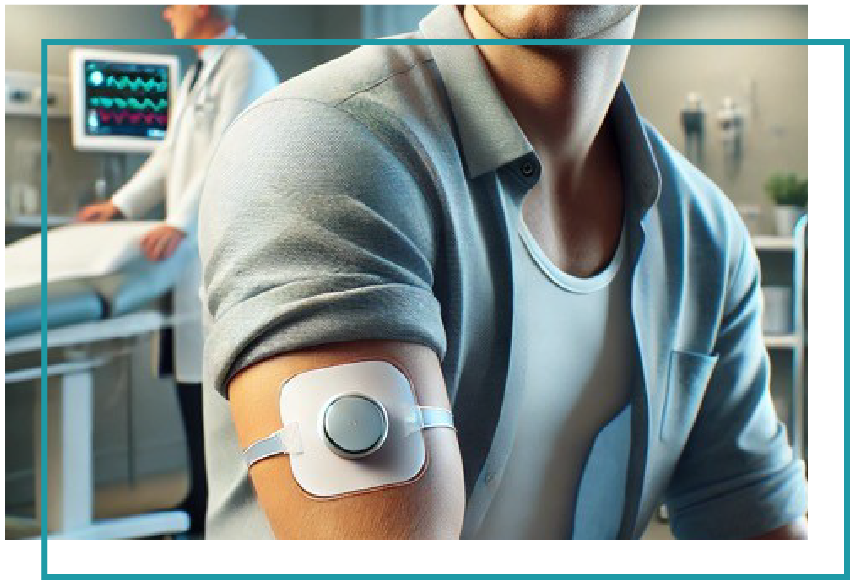
Nanomedicine Molecular and Chemical Designs
Nanomedicine offers transformative approaches for diagnosing and treating diseases. Our lab focuses on the molecular and chemical design of nanoscale materials to create innovative medical applications, such as targeted drug delivery systems that reduce toxicity and improve therapeutic outcomes. These nanoparticles are engineered to navigate the body’s complex environments to deliver medicine precisely where it is needed most, ensuring maximum impact with minimal interference with healthy body functions.
Additionally, our work extends to the development of nanoscale diagnostic tools that can detect diseases at much earlier stages than currently possible. By combining molecular recognition elements with nanoparticles, we are developing highly sensitive and specific diagnostic platforms. These technologies hold the promise of revolutionizing early disease detection, making it possible to start treatment regimens sooner and with greater precision, vastly improving patient prognosis.
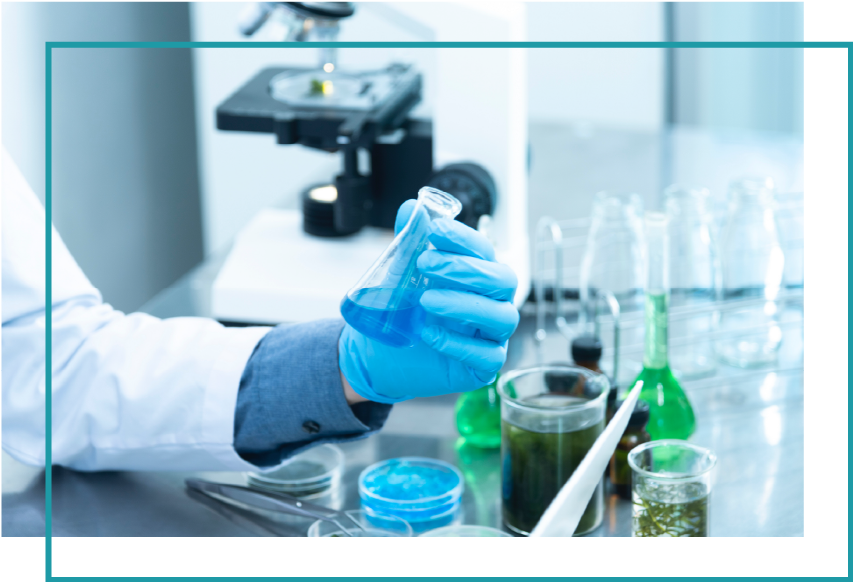
Advanced Testing of Nanosafety
As nanotechnology finds broader application in medicine, the importance of nanosafety cannot be overstated. Our dedicated nanosafety lab conducts comprehensive tests to evaluate the potential risks associated with nano-sized materials used in medical applications. This includes assessing cytotoxicity, genotoxicity, and environmental impact to ensure all products are safe for clinical use and beyond. Our rigorous safety protocols are designed to comply with international standards, providing a framework for responsible innovation in nanotechnology.
In pursuit of developing safer nanomaterials, we also focus on the long-term impact of these substances on human health and the environment. Through continuous monitoring and collaboration with regulatory bodies, we aim to refine safety assessments and enhance transparency in our nanotechnology practices. These efforts ensure that our advancements in nanomedicine are not only effective but also safe for all stakeholders involved.
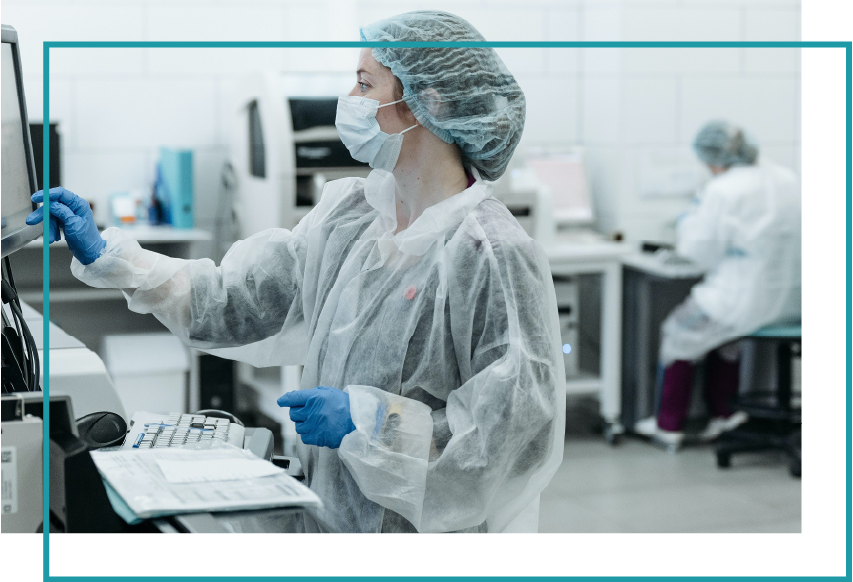
Personalized Medicine Based on Metabolomics and Genomics
The future of medicine is personalized, and our research in metabolomics and genomics is at the forefront of this revolution. By analyzing individual genetic profiles, we can tailor medical treatments to each person’s unique biological makeup, enhancing the efficacy and minimizing adverse reactions to drugs. This approach allows for more precise diagnostics and personalized treatment plans that align closely with each patient’s specific health needs.
Our ongoing research also delves into metabolomics, which provides insights into metabolic changes brought on by both illness and treatment. This information, when combined with genetic data, offers a comprehensive understanding of a patient’s health status, leading to optimized treatment strategies that are more effective and faster-acting. Our commitment to personalized medicine not only aims to improve therapeutic outcomes but also to revolutionize the way healthcare is delivered by making it as individualized as the patients we serve.

Augmented Reality in Robotic Surgery Training
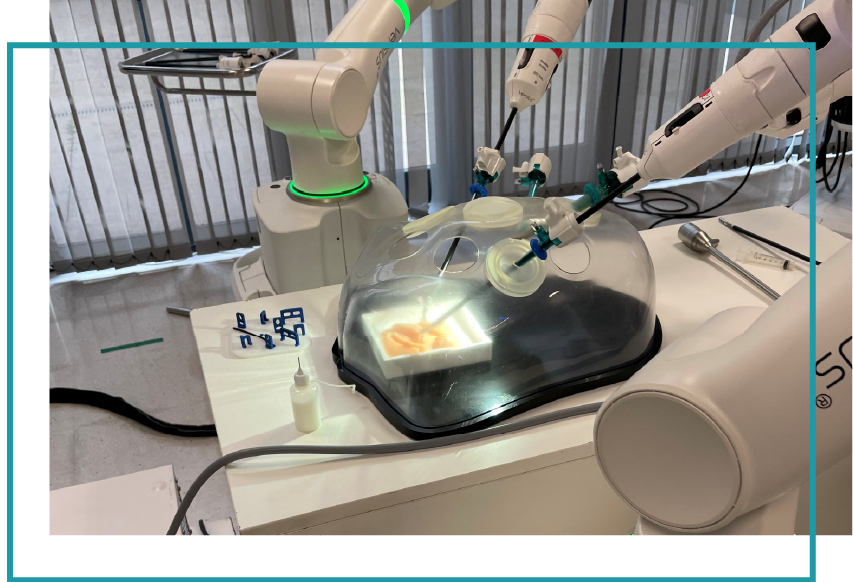
The advent of augmented reality (AR) in medical education, particularly in robotic surgery, marks a significant evolution in training methodologies. AR platforms integrate digital information into the physical operating room environment, providing real-time, 3D visualizations that enhance the surgical learning experience. These systems overlay crucial anatomical details and procedural cues directly onto the surgeon’s field of view, allowing trainees to practice complex procedures without the risk associated with live operations. By simulating various surgical scenarios, AR helps budding surgeons gain confidence and expertise, accelerating their learning curve in a controlled and interactive environment.
Advanced Molecular Labelers for Precision in Robotic Surgery

In the pursuit of precision, the development of new molecular labelers is revolutionizing robotic surgery. These advanced compounds are designed to bind specifically to different tissues, highlighting critical structures with fluorescent markers during surgical procedures. This technology enables surgeons to see and distinguish between types of tissues in real time, greatly enhancing accuracy and safety during operations. The integration of these labelers into robotic surgery systems is particularly impactful, as it complements the high degree of maneuverability and precision that robots provide, ensuring that surgical interventions are as non-invasive and effective as possible.
Leveraging Databases and Artificial Intelligence for Surgical Training
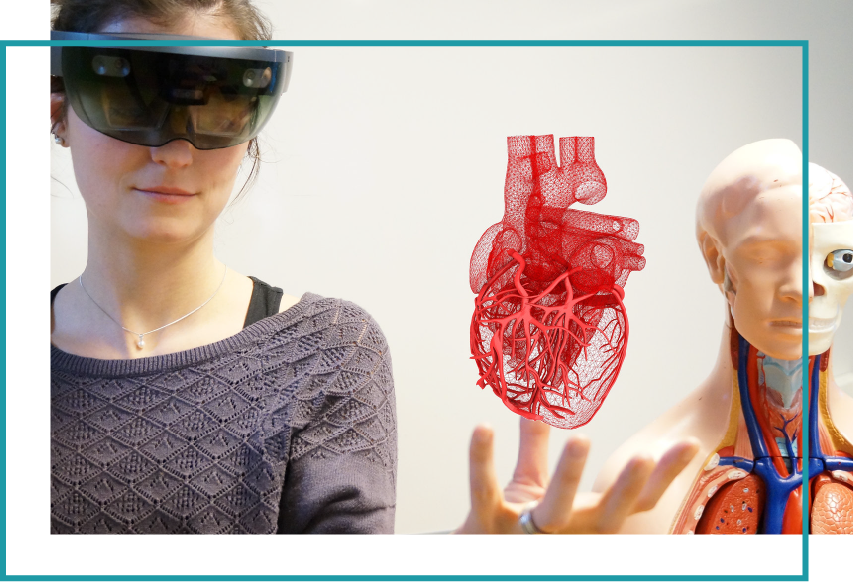
The advent of augmented reality (AR) in medical education, particularly in robotic surgery, marks a significant evolution in training methodologies. AR platforms integrate digital information into the physical operating room environment, providing real-time, 3D visualizations that enhance the surgical learning experience. These systems overlay crucial anatomical details and procedural cues directly onto the surgeon’s field of view, allowing trainees to practice complex procedures without the risk associated with live operations. By simulating various surgical scenarios, AR helps budding surgeons gain confidence and expertise, accelerating their learning curve in a controlled and interactive environment.